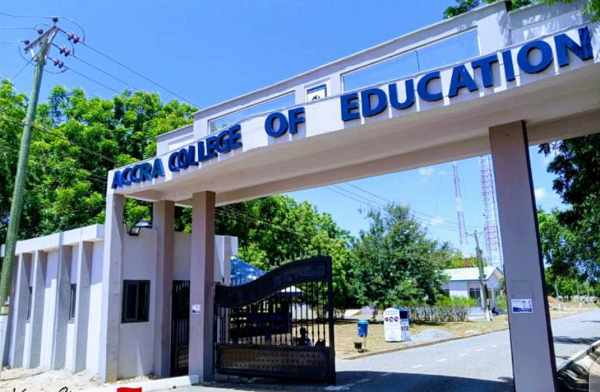
Conduct infrastructure audit in colleges of education - Dialogue participants
Participants in the Colleges of Education Weekly Journal (CoEWJ) National Dialogue on Initial Teacher Education have called on the Ghana Tertiary Education Commission (GTEC) to carry out infrastructure audit in all the colleges of education to ascertain what deficits prevail.
According to them, the introduction of the Free Senior High School (SHS) policy in the country had increased considerably the number of candidates who applied for admission into colleges of education.
Advertisement
Moreover, they said the introduction of the four-year Bachelor of Education programme had culminated in additional one year of students staying in college, adding that, “this has brought a lot of pressure on the already-existing inadequate infrastructure on campuses. These challenges include but not limited to deficits such as halls of residence, lecture halls, laboratories and college libraries”.
Materials
“Facilities and materials to promote effective teaching and learning all appear to be inadequate since infrastructure is limited. The same materials that used to cater for three cohorts on campus are the same used to cater for the current four cohorts.
“All the 46 colleges of education have resorted to a double-shift system, whereby different cohorts or levels report to college for their academic work alternatively. This is to enable the different groups to have a fair use of the limited facilities. This system is having negative effects on the learning outcomes, management and administration of the colleges, as well as the well-being of all staff and students,” the participants said.
They said these in a communique issued by the CoEWJ National Dialogue on Initial Teacher Education held at the Ghana National Association of Teachers (GNAT) Hall in Accra.
The event, which was on the theme, “Four years into the transformation of colleges of education into degree-awarding institutions — Realities and the way forward”, was attended by over 250 participants from the education sector.
Conversation
The aims of the dialogue were to, among others, advance a conversation on the current state of the colleges of education in the country as degree-awarding institutions, the potential impact of the colleges of education transformation processes on the training of prospective teachers, the realities of prospects and challenges facing the colleges and how these could be best addressed.
The communique, which was signed by the Board Chair of T-TEL, Prof. Jophus Anamuah-Mensah, and the Editor-in-Chief of the CoEWJ, Larry Kofi Agbador, said, among other things, that since ICT had become an indispensable tool today, there was the need to contextualise its critical importance in the training of teachers.
Other Trending Stories
“Libraries are the heartbeat of academic institutions and so college libraries must be well stocked with relevant reference materials to support staff and students in their lifelong learning and research,” it said.
Reflections
The participants, upon reflection and realising the pivotal role of “supported teaching in schools” and off-campus teaching practice, recommended that affiliated universities should collaborate with colleges of education to develop a professional practice policy to direct all the activities that related to professional practice.
It said since professional practice provided the real interface between training and the actual teaching profession, the Ministry of Education and the GTEC must ensure that colleges had adequate buses designated for that important activity.




